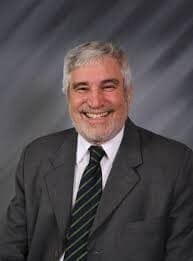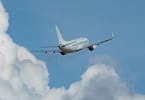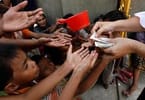- El Xarxa Mundial de Turismek President, Dr. Peter Tarlow, issued a sober report reflecting on 20 years since September 11, 2001, and the way the world of travel and tourism has been changing.
- Although most people still remember those tragic days, there is now an entire generation that was born after the September 11, 2001. For them 9/11 is an historical event that occurred long ago.
- The 2020-21 COVID-19 pandemic created a new set of challenges for tourism. For many younger people they cannot imagine the world of travel without restrictions and too many do not realize that the basis for many of our travel restrictions have their roots in what occurred on September 11, 2001.
During the last two decades, tourism and travel professionals have come to realize that the old assumption that “security adds nothing to the bottom line” is no longer valid Tourism officials today see security as an integral part of their marketing efforts. Tourism security and policing, once the stepchild of the travel and tourism world, is now an essential part of the industry.
Tourism and travel customers no longer fear security; they embrace every aspect of it, from counter-terrorism measures to issues of public health. Travelers ask marketers about it, learn about it, and use security measures as a major component in travel decision-making. Furthermore, in COVID-19, the public now considers health measures as a part of tourism security.
One of the ways that this new age of security is coming about is in the growth of private security forces (also known in some parts of the world as private police forces).
Private security, along with TOPPs (tourism-oriented policing and protection service) units have now become essential ingredients for a successful tourism industry. This reality is especially true both in countries, such as the United States and parts of Latin America, where there is anti-police sentiment accompanied by soaring crime waves and in locations that are more protection oriented.
Although these private safety forces do not always have the right to arrest, they do provide presence and immediate response time.
As such, in an age of rising political and economic uncertainties, private security for some areas of tourism has become an option to consider.
It has also become an option to consider for city governments faced with the public’s desire for protection and relief from heavy tax burdens. In the last twenty years, the public has come to expect some form of security not only at airports but at such places as shopping centers, amusement areas/parks, transportation hubs, hotels, convention centers, cruise ships, and sporting events.
Despite many improvements in the world of tourism security and TOPPs, there is still much to do.
How we in the tourism industry have been doing during the last decades
- La indústria aèria
Perhaps no part of tourism has received as much attention around the world as the airline industry. The last twenty years have had their ups and downs for the airline industry, with 2020 being the industry’s biggest down. There is no doubt that airlines are an essential part of tourism: without air transportation, many locales simply die, and air traffic is an essential part of both the leisure tourism business and also of commerce, business travel, and the shipment of goods.
Air travel today is much less pleasant than it was twenty-one years ago or even two years ago. Many travelers question if all of these measures are necessary or wonder if they might not be irrational, wasteful, and pointless. Others take an opposing view. In an age of pandemics, air travel security is not merely about securing the aircraft, but also about making sure that terminals are clean and baggage handling does not spread infections.
Not only have new security regulations made life difficult for travelers, but also many forms of customer service have declined. From food to smiles, airlines simply provide less and often seem to be capricious in the way they treat the public. It is, therefore, disappointing that so little has been accomplished in air transport security. Too many customers wonder if airline security is more reactive than proactive.
QUÈ TREURE D'AQUEST ARTICLE:
- One of the ways that this new age of security is coming about is in the growth of private security forces (also known in some parts of the world as private police forces).
- For many younger people they cannot imagine the world of travel without restrictions and too many do not realize that the basis for many of our travel restrictions have their roots in what occurred on September 11, 2001.
- without air transportation, many locales simply die, and air traffic is an essential part of both the leisure tourism business and also of commerce, business travel, and the shipment of goods.























